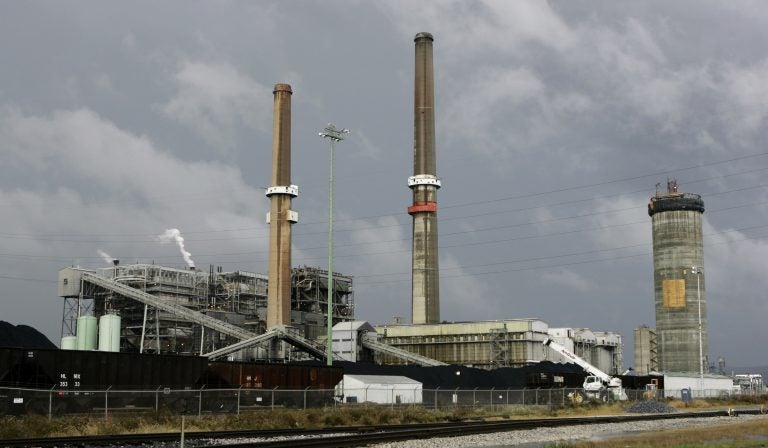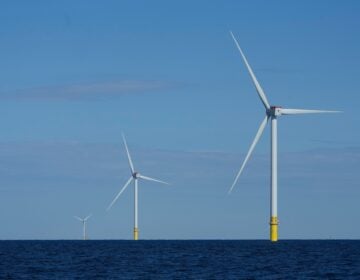Delaware, New Jersey join lawsuit against EPA’s cross-state pollution rule
Delaware, New Jersey and four other states are challenging the EPA’s ruling on reducing pollution that blows across state lines.

PPL's Brunner Island is a three-unit, coal-fired plant located on the west bank of the Susquehanna River, is seen in York Haven, Pa. (Carolyn Kaster/AP Photo)
Six states are challenging the EPA’s ruling on smog pollution controls, which takes a hands-off approach to cross-state pollution.
The coalition includes Delaware, New Jersey, Connecticut, Massachusetts, Maryland, New York and New York City.
The EPA softened an Obama administration decision that restricted pollution affecting downwind states including Delaware and New Jersey. Under President Obama, the EPA determined that downwind states needed protection from emissions blowing across their borders. In December, the EPA under President Donald Trump finalized a rule that reversed that assessment.
“Our families and children in Delaware routinely are breathing polluted air that comes from outside the state,” said Delaware Attorney General Kathy Jennings. “The EPA has had a longstanding obligation to protect those states that are particularly harmed by other states’ pollution.”
Jennings accused the Trump administration of rolling back protections for Delaware, making it harder for the state to enforce its clean-air rules. “People have a right to breathe clean air, but if the EPA isn’t enforcing strong regulations that would prohibit other states from their own polluters getting bad air into our state, then we have to do something about it.”
The lawsuit asks the District of Columbia Circuit Court of Appeals to vacate the EPA’s ruling, forcing the Trump administration to consider tougher rules on cross-state pollution.
Even though Delaware has taken major strides in reducing pollution, the state’s air quality ranks among the worst in the nation. State leaders blame 90 percent of that bad air on sources beyond the state’s borders. From 2000-2017, the state’s coal-fired electricity plants have been reduced by about 90 percent. Despite that, New Castle County — Delaware’s most populous county — has gotten an F for clean air for 19 years in a row.
“We’re at a real disadvantage because of our size, and so we rely on the federal government to protect us, and that’s not happening,” Jennings said.
New Jersey is in a similar position. In a state with some of the strictest limits on nitrous oxide emissions, multiple Jersey counties are out of compliance with federal standards for ground-level ozone.
“Although New Jersey has done its part to protect our residents and our children from ozone pollution, coal-burning plants in other states keep on ignoring the consequences of their actions,” said New Jersey Attorney General Gurbir Grewal in a statement. “Because they are outside our borders, these companies think that they can get away with putting our health at risk.”
Grewal points to coal-burning power states Illinois, Indiana, Kentucky, Michigan, Ohio and West Virginia.
Delaware has been fighting out-of-state pollution for years. In 2013, then-Gov. Jack Markell joined a group of northeastern states in filing a petition with the EPA to require nine upwind states — Illinois, Indiana, Kentucky, Michigan, North Carolina, Ohio, Tennessee, Virginia and West Virginia — to reduce air pollution emissions that are carried downwind.
Six years later, the fight continues.
WHYY is your source for fact-based, in-depth journalism and information. As a nonprofit organization, we rely on financial support from readers like you. Please give today.





